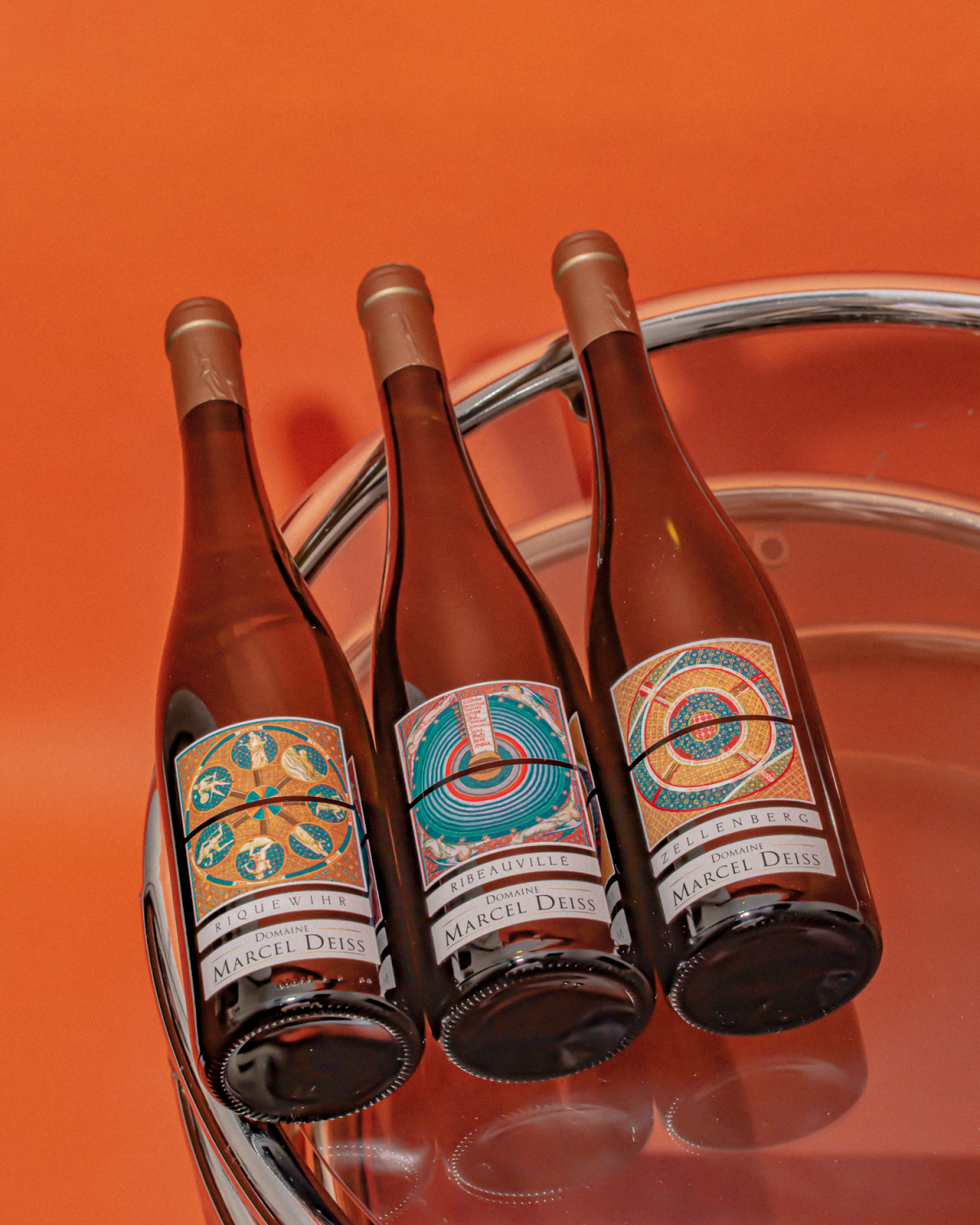Marcel Deiss

A Jurassic Park
No one will argue that Deiss is among the top two or three domaines of Alsace. Domaine Marcel Deiss is a mid-size estate (27 hectares) located in the postcard perfect Bergheim, near Ribeauvillé in Alsace. It is a deeply-rooted family estate as the Deiss ancestors and can be traced in the village back in 1744. Old right?
Well it gets older. Deiss has a high (350 m) north-facing vineyard, with limestone soil that dates back to the Jurassic era. A very tropical era with a lot of energy, that has translated directly into the flavour of his wines. Historians detail that the soil was lying at the bottom of a warm sea so the wine produced on that lot is always warm and tropical.
Under the guidance of Jean-Michel Deiss (Marcel’s grandson), who has run the winery since 1981, the vineyards have been gradually turned organic, then farmed along the biodynamic method since 2003. His single-minded focus is on making wines that reflect the terroir – the soil and microclimate – from which they are drawn.
Ever the individualist and rebel, Jean-Michel has sought to re-assert the importance of co-plantings of different grape varieties as the best way of expressing the characteristics of a vineyard. Meaning that at Deiss all of the wines produced are blends of several grape varieties. Thus, the labels only show the vineyard name, not the varieties themselves. The Deiss range is then divided into three categories, with a focus on respectively the fruit (the grape variety), the terroir, and the vintage conditions: Vins de Fruits (wines carrying a varietal designation), Vins de Terroirs (all wines with a geographical designation) and Vins de Temps (wines in a style dependent on the vintage).
Ever the individualist and rebel, Jean-Michel has sought to re-assert the importance of co-plantings of different grape varieties as the best way of expressing the characteristics of a vineyard. Meaning that at Deiss all of the wines produced are blends of several grape varieties. Thus, the labels only show the vineyard name, not the varieties themselves. The Deiss range is then divided into three categories, with a focus on respectively the fruit (the grape variety), the terroir, and the vintage conditions: Vins de Fruits (wines carrying a varietal designation), Vins de Terroirs (all wines with a geographical designation) and Vins de Temps (wines in a style dependent on the vintage).
Jean-Michel is a passionate and somewhat controversial preacher of the Alsatian tradition of complantation (co-plantation), or blending varieties in the vineyard. He believes that a true expression of a site’s terroir is only possible through blending the traditional Alsatian varieties in proportions suited to a particular site. Co-plantation is the art of mixing grape varieties in a terroir. It is the oldest form of viticulture known before the appearance of clones and the depletion of biodiversity, harking back to Deiss’ commitment to celebrating his Jurassic soil. The process ensures regular harvests by creating a complex and naturalist ecosystem. Conducted with a real respect for life, Deiss vineyards are planted with the 13 Alsatian grape varieties, driven, harvested and pressed together, vinified with patience and without inputs.

Co-Plantation King
Marcel shot to bad-boy status with the INAO (the French organization charged with regulating French agricultural products) after he planted his grand crus to field blends (an illegal move and a technique normally reserved to lowly wines). Then, he took on the Alsatian cru system. Too many grand crus, and too large at that, but no premier cru was idiotic, he thought, and he self-appointed seven of his top vineyards “premier crus” (illegally of course). When you taste them, it makes crystalline sense, but Jean-Michel fast became a Domaine hero and villain. Spoiler alert. The good guy won, and he recently managed to convince the INAO to change regulations allowing a blend to have Grand Cru status for the first time. Ouah!